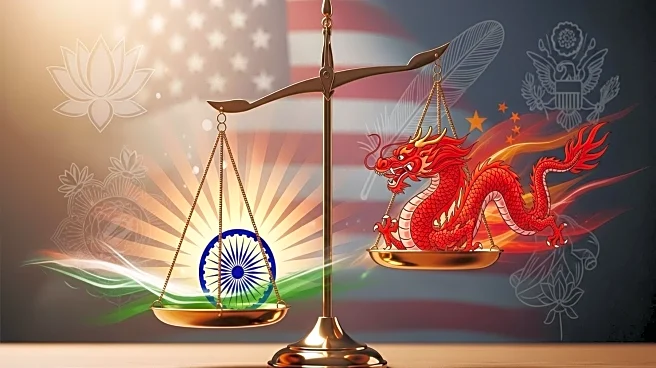What's Happening?
India is navigating complex international relations as President Trump announced a 25% tariff increase on imports from India, raising the total to 50%. This move threatens the bilateral relationship, which has been carefully built over 25 years. The tariffs are seen as punishment for India's purchase of Russian oil and its protectionist market policies. In response, India is strengthening ties with other nations, including Russia and China, to demonstrate its autonomy. India is also focusing on clean energy initiatives, aiming to reduce dependency on Chinese imports while expanding its renewable energy capacity.
Why It's Important?
The increased tariffs from the U.S. could have significant economic implications for India, potentially affecting trade and investment flows. India's efforts to diversify its energy sources and strengthen ties with China and Russia highlight its strategic approach to maintaining energy security and economic growth. The situation underscores the challenges India faces in balancing relations with major powers while pursuing its clean energy goals. The tariffs may also impact U.S.-India relations, influencing future diplomatic and economic engagements.
What's Next?
India is likely to continue strengthening its ties with China and Russia, focusing on energy security and clean energy initiatives. The country may seek to expand its manufacturing capabilities and reduce dependency on imports, particularly from China. The U.S. tariffs could lead to further diplomatic negotiations, as India aims to mitigate the impact on its economy. Additionally, India's clean energy ambitions may drive further policy developments and international collaborations to achieve its goals.
Beyond the Headlines
India's situation highlights the broader geopolitical dynamics at play, as countries navigate complex relationships amid shifting global power structures. The focus on clean energy and manufacturing capabilities reflects India's long-term strategic goals, which could influence global energy markets and environmental policies. The interplay between economic policies and international relations may also impact global trade patterns and diplomatic alliances.










